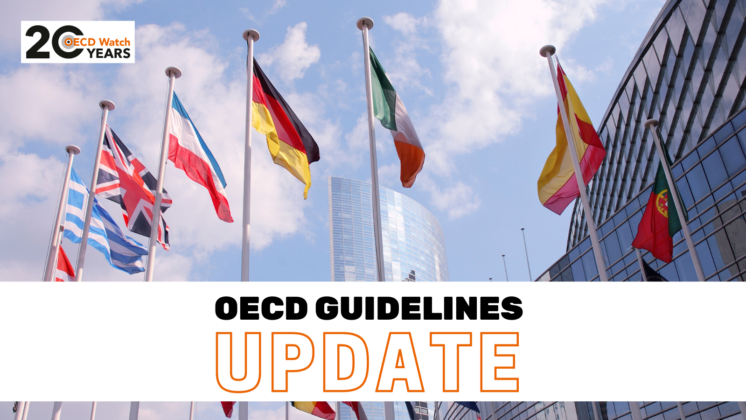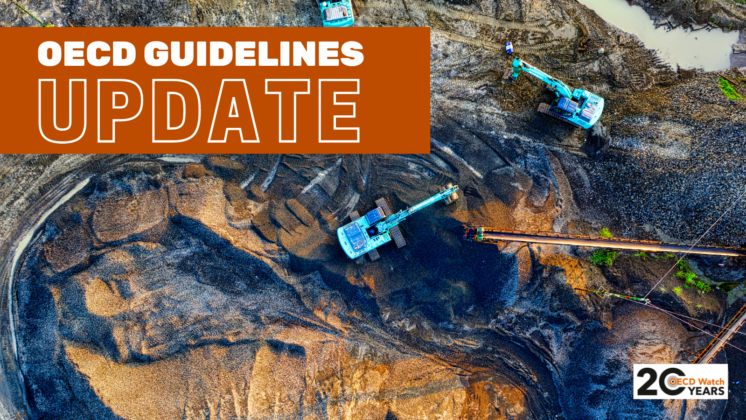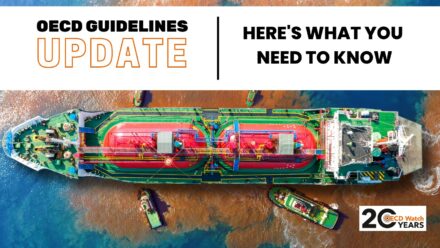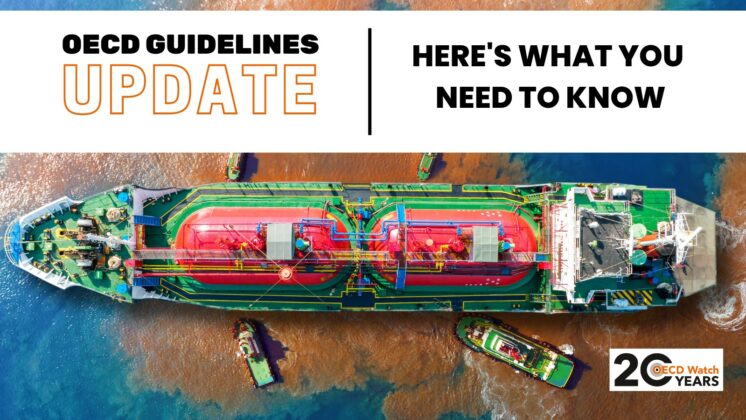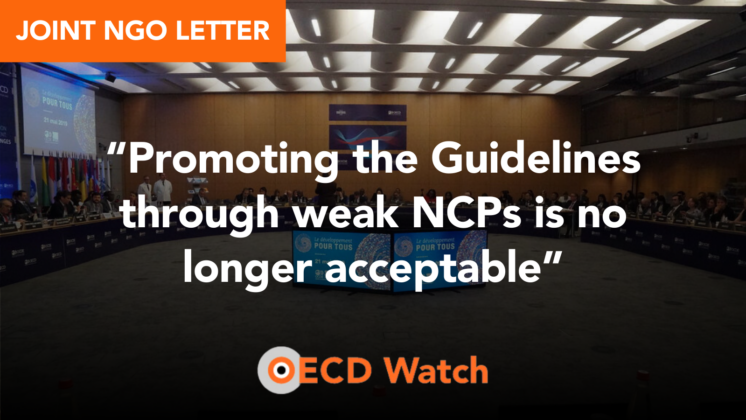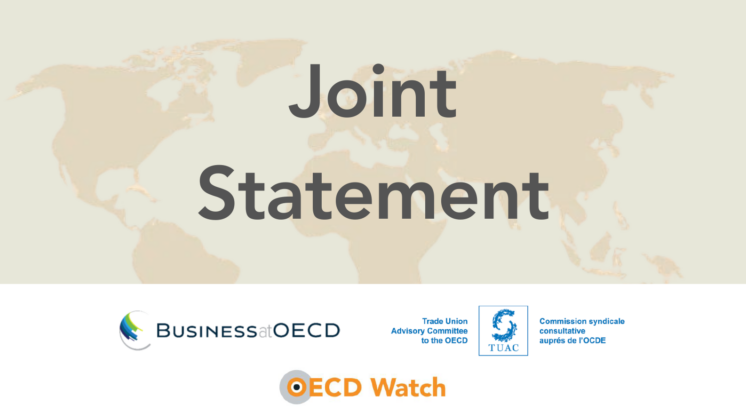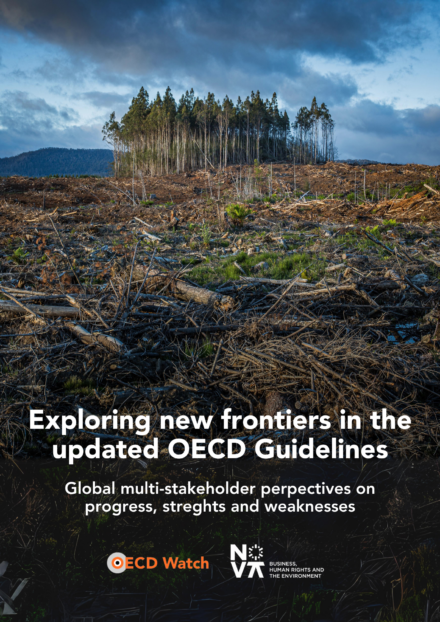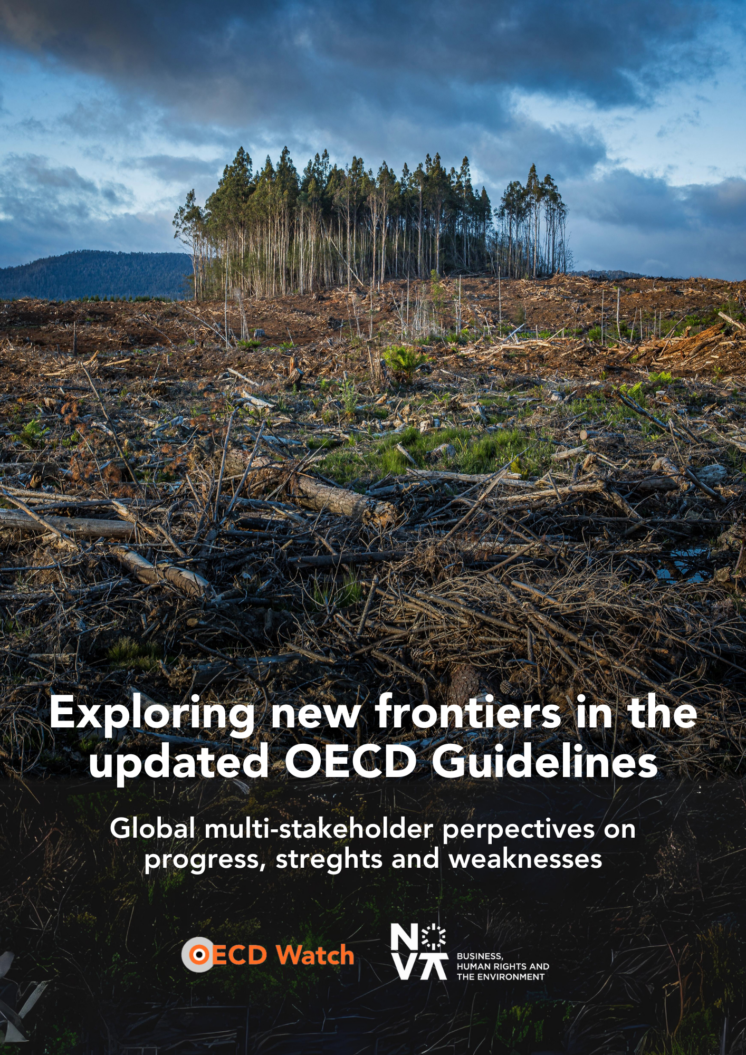Let’s unpack the updated OECD Guidelines! In June the OECD released significantly updated text for the OECD Guidelines for Multinationals Enterprises on Responsible Business Conduct. Throughout the month of November, OECD Watch will be hosting a series of workshops for civil society to better understand what is in the text of the Guidelines and offer a space for strategic discussion and planning on how they could be used.
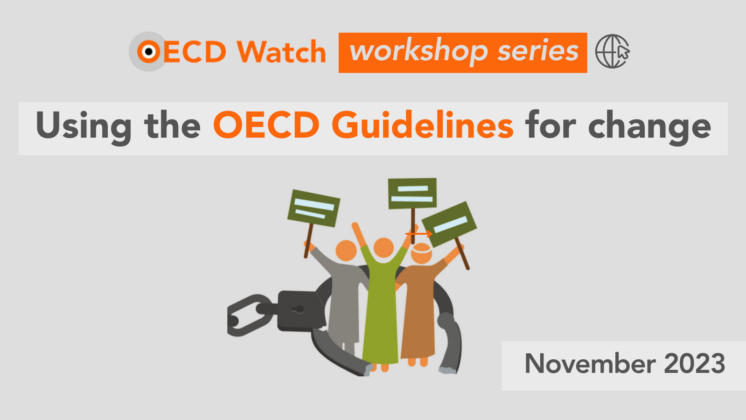
Each workshop is one-hour long and will either explore the updates on a specific new topic covered by the Guidelines, or present an overview and analysis of the updates that is tailored to the concerns and opportunities for a particular region. The sessions will start with a brief presentation on what the updated Guidelines say, then open into a space for strategic discussion among participants about the various ways civil society can use the Guidelines to support their work and campaigns. There will also be space to discuss the gaps that remain in the Guidelines and how OECD Watch might address them at the OECD. The sessions are intended to give you an opportunity to understand the Guidelines and consider how they might support your work.
We will offer each topic-focused workshop at two different times in order to accommodate more time zones. Regional workshops will be held only at one time. We ask participants to register in advance to their preferred workshop(s). We will offer Spanish and Portuguese translation for the LAC regional workshop and French for the Africa regional workshop. If you require translation for any other workshop you wish to attend, please let us know when you register and we will try to accommodate the request.
Workshops completed:
Asia – Wednesday 1st November
Africa – Thursday 2nd November
- Using the OECD Guidelines for change Africa (slides_English)
- Utiliser les lignes directrices de lOCDE pour le changement - Afrique (slides_francais)
Latin America & Carribean – Wednesday 8th November
- Using the OECD Guidelines for change - LAC (slides_English)
- Utilizacion de las Directrices de la OCDE para el cambio - LAC (diapositivas_espanol)
- Usando as Diretrizes da OCDE para mudanca - LAC (slides_Portugues)
Technology – Monday 6th November
The revised OECD Guidelines recognise that technology and digitalisation can have profound and negative impacts on issues such as human and labour rights and the environment. Join this workshop to explore and discuss how civil society can address harms related to science, technology, and innovation by using the OECD Guidelines – and consider next steps for the OECD’s technology and responsible business conduct agenda.
- Using the OECD Guidelines for change - Technology (slides_English)
- Utiliser les lignes directrices de l'OCDE pour le changement - Technologie (slides_francais)
Human rights (including Defenders, Indigenous Peoples, Stakeholder Engagement and more) – Monday 13th November
The OECD Guidelines expect companies to respect all internationally recognised human rights, including through paying special attention to the rights of marginalised and vulnerable groups such as human and environmental rights defenders and Indigenous Peoples, and ensuring enhanced due diligence in conflict settings. The Guidelines also demand meaningful stakeholder engagement, including as a part of due diligence, for all types of responsible business conduct issues. Join this session to discuss how civil society can help ensure corporate respect for human rights by using the OECD Guidelines.
Climate change, environment and just transition – Tuesday 14th November
The updated Guidelines include improved standards for companies on climate change, calling on companies to ensure their business activities fall within the temperature goals of the Paris Agreement and play their own part in ensuring a just transition. In addition, the Guidelines recognise that companies are often involved with environmental harms including biodiversity loss; degradation of land, marine, and freshwater ecosystems; deforestation; air, water, and soil pollution; and mismanagement of waste, including hazardous substances. Join this session to discuss how can civil society can campaign to protect the environment and support a just transition by using the OECD Guidelines.
Due diligence – Thursday 16th November
The Guidelines call on companies to act responsibly, safeguarding the environment and respecting the rights of all people affected by the business. The method the Guidelines recommend companies use to ensure responsible conduct is “due diligence” to identify and address actual or potential harms from business activity. Join this session to discuss how the updated and clarified language on due diligence in the OECD Guidelines can support civil society campaigns for corporate accountability.
Animal welfare – Monday 20th November
For the first time, the updated Guidelines call on enterprises to respect animal welfare standards that are consistent with the World Organisation for Animal Health Terrestrial Code, and also avoid harm to biodiversity. Join this session to discuss how civil society can campaign to strengthen animal protection by using the OECD Guidelines.
Policy coherence – Tuesday 21st November
The Guidelines assert that alignment between national and international policy on responsible business conduct can foster coherence and harmonisation, recommending a smart mix of voluntary and mandatory measures to promote responsible business conduct. Additionally, the 51 governments that follow the Guidelines committed in February 2023 to support adoption of legislative frameworks that include both mandatory and voluntary measures for responsible business conduct. Join this session to discuss how civil society can advocate for strong laws on responsible business conduct, and to talk about the work your and other organisations are doing to advance corporate accountability in legislation.
National Contact Point complaints – Thursday 23rd November
The Guidelines require all OECD members and adhering governments to establish a National Contact Point (NCP) that can receive complaints against a company that may not be adhering to the Guidelines. How can civil society file effective complaints at NCPs? How can complaints strengthen campaigns for corporate accountability, and potentially lead to remedy for those impacted? Join this session to find out more about this complaints mechanism.
- Using the OECD Guidelines for change - National Contact Point Complaints (slides_English)
- Utilizacion de las Directrices de la OCDE para el cambio - Reclamaciones de los Puntos Nacionales de Contacto (diapositivas_espanol)
- Usando as Diretrizes da OCDE para mudancas - Reclamacoes do Ponto de Contato Nacional (slides_portugues)
- Utiliser les Lignes directrices de l'OCDE pour le changement - Plaintes des Points de contact nationaux (slides_French)
Central & Eastern Europe – Monday 4th December
In June 2023, the OECD released significantly updated text as part of the OECD Guidelines for Multinational Enterprises on Responsible Business Conduct. On Monday 4th December, OECD Watch will host a dedicated workshop for civil society in Central & Eastern Europe to discuss how the updated OECD Guidelines can be a helpful tool for civil society and rights holders in this region – whether you are seeking remedy for harm, working on legislation or policy, or engaging with communities and other stakeholders. Companies based in Guidelines-following countries that are operating in these regions should follow the responsible business conduct standards in the Guidelines and, if they don’t, civil society may seek to hold them accountable. Additionally, a number of National Contact Points (NCPs) exist in this region. This session will introduce the Guidelines and NCPs and their potential strategic value to civil society campaigns in the region and also give space to hear what your main priorities and concerns are related to corporate accountability.

